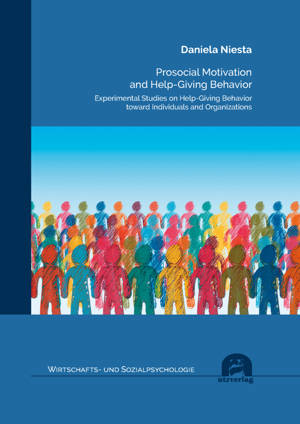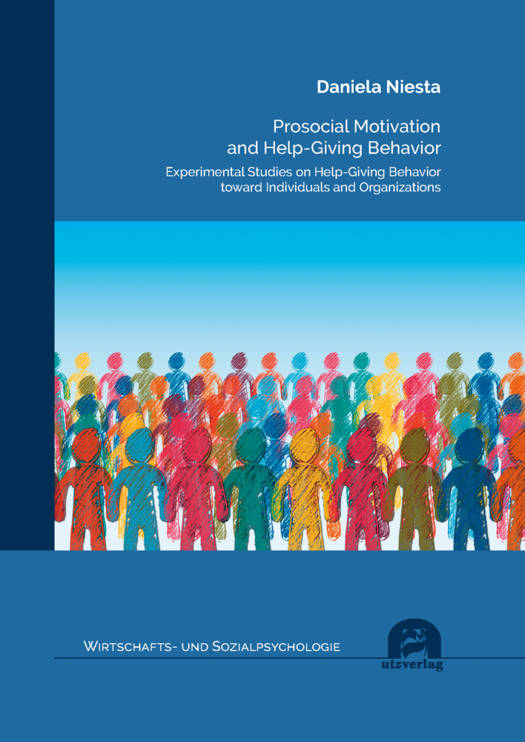
- Afhalen na 1 uur in een winkel met voorraad
- Gratis thuislevering in België vanaf € 30
- Ruim aanbod met 7 miljoen producten
- Afhalen na 1 uur in een winkel met voorraad
- Gratis thuislevering in België vanaf € 30
- Ruim aanbod met 7 miljoen producten
Zoeken
Prosocial Motivation and Help-Giving Behavior
Experimental Studies on Help-Giving Behavior toward Individuals and Organizations. Dissertationsschrift. DE
Daniela Niesta
€ 38,45
+ 76 punten
Omschrijving
One of the major questions in social psychology is why people do - or do not - act prosocially. Previous research, however, has assumed little risk to the help-giver and focused on help-giving to individuals instead of to groups. This book addresses these two shortcomings in three parts. The first part tests the mood-induced prosocial behavior pattern in the context of morally courageous and risky behavior. The subsequent part embeds the theory of social conduct in an organizational context. Attributions about the recipients of donations - responsibility, severity of the plight, for example - influence donations. Finally, the third part examines the critical role of trust in the nonprofit organization and merges recipient-based characteristics with organization-based characteristics as cues to determine an individual's willingness to donate. The studies in this book suggest means to stimulate prosocial behavior such as moral courage and charitable donation.
Specificaties
Betrokkenen
- Auteur(s):
- Uitgeverij:
Inhoud
- Aantal bladzijden:
- 132
- Taal:
- Engels
- Reeks:
- Reeksnummer:
- nr. 3
Eigenschappen
- Productcode (EAN):
- 9783831685929
- Uitvoering:
- Paperback
- Afmetingen:
- 145 mm x 8 mm
- Gewicht:
- 193 g

Alleen bij Standaard Boekhandel
+ 76 punten op je klantenkaart van Standaard Boekhandel
Beoordelingen
We publiceren alleen reviews die voldoen aan de voorwaarden voor reviews. Bekijk onze voorwaarden voor reviews.











